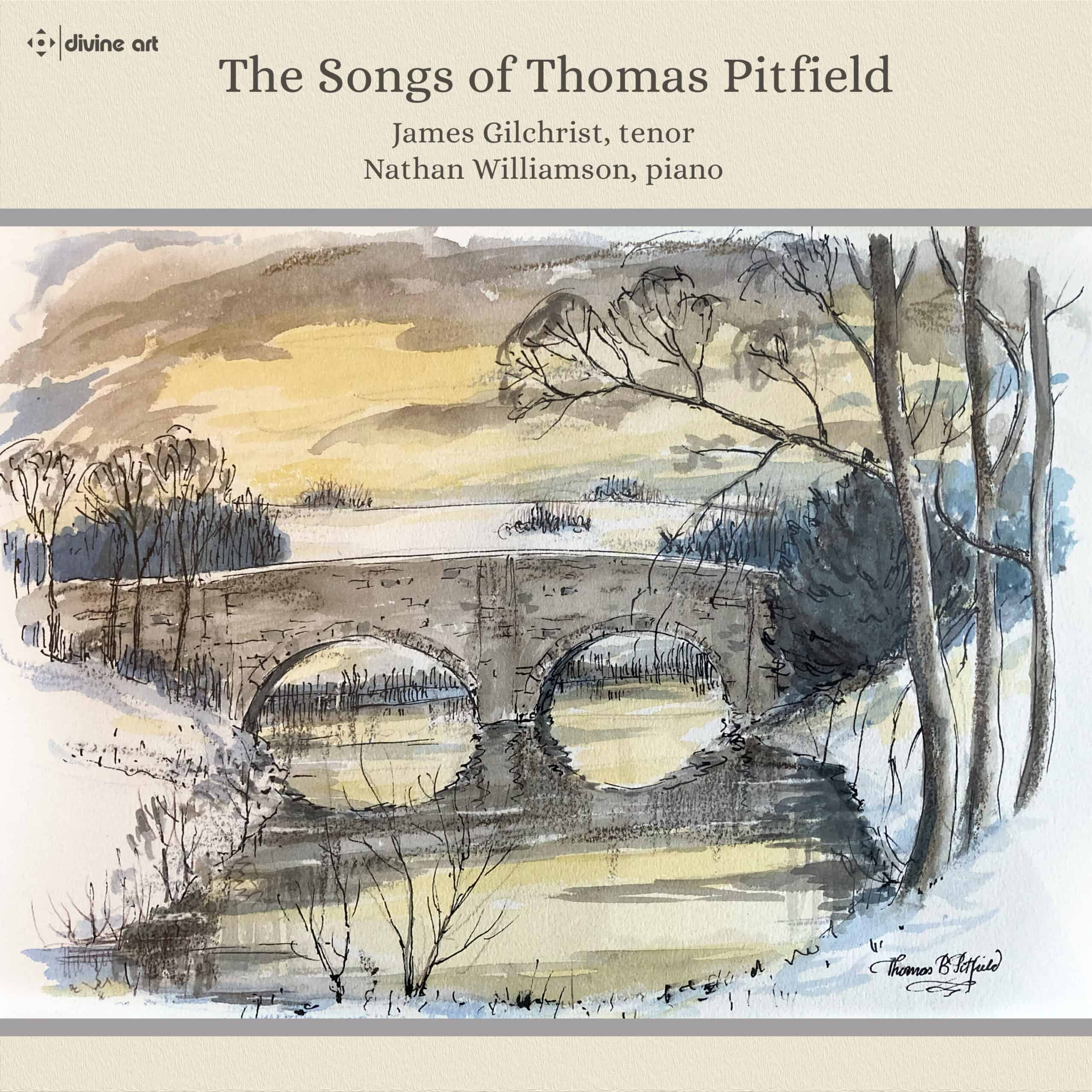American Record Guide
Thomas Baron Pitfield (1903-99) was a British composer, poet, artist, engraver, cal- ligrapher, craftsman, furniture builder, and teacher. He was essentially self-taught as a composer, but studied piano, cello, and harmony at the Royal Manchester College of Music. Pitfield was a life-long vegetarian, a man of modest means, a pacifist, and a man closely attuned to the natural world.
During his lifetime and into his 90s Pitfield composed more than 150 songs. Most of the songs of this album are settings of his own texts or texts of his friends. They cover a wide range of moods, but a somber reflection on life dominates the program from the start. Two songs tell of the awesome but deadly power of the sea and two by Pushkin in English translation by Alice Pitfield (his wife) reflect on the harshness and uncertainty of life.
All but 2 of these 28 songs composed from 1934 to 1989 are from his book The Poetry of Trees, which included his own illustrations. He considered the production of the book, bound by his own hands in wood and leather, to be one of his finest achievements. The album cover is adorned by one of those illustrations.
Two settings of `Lingering Music’ are included here. Dates of composition are not given, but it gives a chance to hear two different ways he approached his own text. Other songs are about separation from home and family. Many have a nostalgic tone. The songs are ordered thoughtfully. Three songs with nighttime settings come toward the end of the program. `The Child Hears Rain at Night’ presents a child fearful of the wind and rain beating on his window followed by `Song of Compassion’, a prayer for “all birds and beasts that seek shelter” in such conditions. That is followed by Pitfield’s arrangement of the French nursery rhyme `Au Clair de la Lune’ in his own translation.
The program ends with 4 brief and witty songs, one about a slow tortoise and another about a dog who bites off his master’s leg, to which the master replies, “I’d kick you if I could!” I found his songs tuneful and easy to like, even if they may not find their place in the pantheon of greatest songs.
James Gilchrist shows again why he is so widely admired as a singer, particularly of English song. His voice is warm and supple; his phrasing is keenly nuanced; his varied use of dynamics illuminates the texts knowingly. Nathan Williamson’s collaboration is on par. It would be hard for me to imagine a better rendering of these songs. `Winter Evening: Dunham Park’ beautifully evokes the silence as day turns to night and “All shapes dissolve into the gathering grey”. Gilchrist gently characterizes the mood per- fectly.
This seems to be the first recording of Pitfield’s songs, and it makes a very strong case for them. Very few recordings of his music are available, but several recordings of his chamber and orchestral works are. Gil French in a review of Pitfield concertos for Naxos characterized his music as “bright, rhythmically infections, and tonal” (M/A 2006). That description also applicable to his songs.
Notes by Rosemary Firman offer a tribute to this modest man for whom life was, as he called it, “endless fascination”. Texts are included.
@divineartrecordingsgroup
A First Inversion Company
Registered Office:
176-178 Pontefract Road, Cudworth, Barnsley S72 8BE
+44 1226 596703
Fort Worth, TX 76110
+1.682.233.4978












